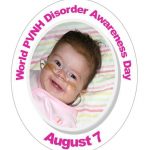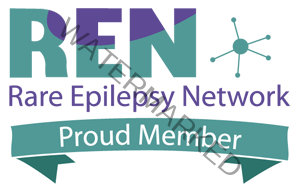FOR IMMEDIATE RELEASE
Yolaine Dupont
Ph: 1. 604. 616.5171
mail: info@pvnhsupport.com
18 LANDMARKS IN 5 COUNTRIES LIGHT UP TO RAISE AWARENESS FOR ‘AUGUST 7th – WORLD PVNH DISORDER AWARENESS DAY’ IN MEMORY OF ELLA & IN SUPPORT OF HUNDREDS OF AFFECTED FAMILIES
VANCOUVER, BRITISH COLUMBIA, CANADA, August 5th, 2019 – August 7th will mark the 8th edition of World PVNH Disorder Awareness Day, also known as PVNH Day, created in memory of a little girl named Ella. Andrew Bannister, a young para athlete from Western Australia, has made it his mission to help Ella’s mom, Yolaine Dupont, light as many landmarks as possible this year to mark the day for a disorder he also has. From August 5th to August 11th, thanks to the pair’s dedication, at least 18 landmarks in five countries will either glow pink and yellow, pink or yellow. On August 7th, families and friends will paint their lives and social media in both awareness colours in support of PVNH-affected families worldwide and share photos in social media. Originally created in Vancouver, BC, Canada in memory of Ella Dupont Bedassie, PVNH Day brings attention to neuronal heterotopia disorders in support of affected babies, children and adults around the globe. A rare neuronal migration disorder that may go unrecognized for years, Periventricular Nodular Heterotopia (PVNH) took the life of Yolaine Dupont’s daughter, Ella, in March 2009. Since then, Dupont has been tirelessly working to bring light to this rare and sometimes fatal disease as well as to other neuronal heterotopia disorders. She educates families and medical professionals alike and fundraises for research in addition to currently providing support to 500+ affected families in 33 countries.
In the words of Lori Bro, from Canada, whose 10 year old daughter was diagnosed with PVNH last fall: “ Our world stopped. We did not know what to do. The greatest thing we did for our daughter was to look for awareness, not fear. The loneliness you feel as a parent is overwhelming and dark. Spreading awareness helps bring light to families with no one else to turn to.’’
Dupont adds “I can’t bring back Ella, but I can try to ensure that no other families are left alone to fend for themselves, that no other child goes undiagnosed for so long that its life is at risk, or worse, that it is lost. This year when my own PVNH health went sideways, Andrew stepped up and reached out to dozens of landmarks to bring attention to our cause. His work will benefit us all. Having landmarks glow for PVNH Day is crucial to my quest. I am so grateful! ’’
Lighting Schedule: On August 5th, BC Place (BC), will kick off the illuminations in five countries. On August 6th, Calgary Tower (AB), Niagara Falls (ON) and Peace Bridge (ON,/NY) will follow. On August 7th, World PVNH Awareness Day, will see Swan Bell Tower (Perth, AU), High Level Bridge (AB), CN Tower (ON) , Science World and Vancouver City Hall (BC), Sydney Town Hall (Sydney, AU), Aspire Tower (Doha, QA), Optus Stadium, Matagarup Bridge and Trafalgar Bridge (Perth, AU), Telstra Tower (Canberra, AU) light up. On August 8th, Spinnaker Tower (Portsmouth, UK) and Canada Place (BC) will glow. And on August 11th, Elizabeth Quay Bridge (Perth, AU) will close the celebrations of World PVNH Disorder Awareness Day.
On August 7th, 2019, the 8th World PVNH Day, Ella Dupont Bedassie would have turned eleven. It is a blessing that so many landmarks will shine bright to raise awareness for the rare disorder that took her from her family, and that gives hope to hundreds more. To mark PVNH Day on Ella’s memorial birthday, Dupont is inviting everyone to be #PVNHloud and participate in the social media conversation about PVNH. Show your support by wearing pink and yellow, decorate your home or place of business, take a photo and post it using the hashtags #PVNHloud; #PVNHday or #PVNHawareness. Most of all, Dupont invites you to have fun. Details on World PVNH Day events can be found on the PVNH Support & Awareness website. PVNH Support & Awareness wishes to thank the landmarks’ teams making our awareness efforts possible.
– 30 –
PVNH Support & Awareness is an international non-for-profit organization that connects families together and educates patients, family members and medical professionals about Periventricular Nodular Heterotopia (PVNH) and other neuronal heterotopia disorders. Its goals are to positively impact the lives of affected patients, to fundraise for research, and hopefully one day, finding a cure. It was created in 2009 by Yolaine Dupont as a legacy for her daughter Ella Dupont Bedassie. Ella was 7 months and 20 days when she died from respiratory failure, the cause of which was not known. Six months later, confirmation came that Ella had the rare disease Periventricular Nodular Heterotopia, caused by a Filamin A (FLNA) gene mutation. Further testing showed that PVNH ran in Dupont’s family whom is one very rare family with three (3) generations of affected members. As founder, patient navigator and sole volunteer, Dupont currently provides support to more than 500 families who have a neuronal heterotopia diagnosis, in 33 countries. All seek better care and treatment options to live life to the fullest. UNITE. EDUCATE. ADVOCATE. FIND A CURE.
Social media information
PVNH Support & Awareness: PVNH Day: www.facebook.com/PVNHday/
www.facebook.com/PvnhSupportAwareness/
Twitter and Instagram: @PVNHday
Twitter and Instagram: @PVNHsupport
Yolaine Dupont: @vangroovymom
WHAT IS PVNH?
Periventricular nodular heterotopia (PVNH) is one of those rare disorders you may not know you have. It is a rare neuronal migration disorder characterized by the presence of nodules of neurons (gray matter) in the wrong sp”ot in the brain. It comes in different forms and often affects multiple organs. Seizures can occur in up to 90% of patients, and learning difficulties are not uncommon. Some individuals have profound motor, cognitive and developmental delays and some have connective tissue problems which can affect joints and blood vessels and lead to gastrointestinal, pulmonary and heart complications, among other issues. A brain MRI investigation usually confirms the diagnosis. There is no cure to PVNH; only symptoms can be treated. If unrecognized and untreated, these problems can be fatal. Its prevalence is unknown.


